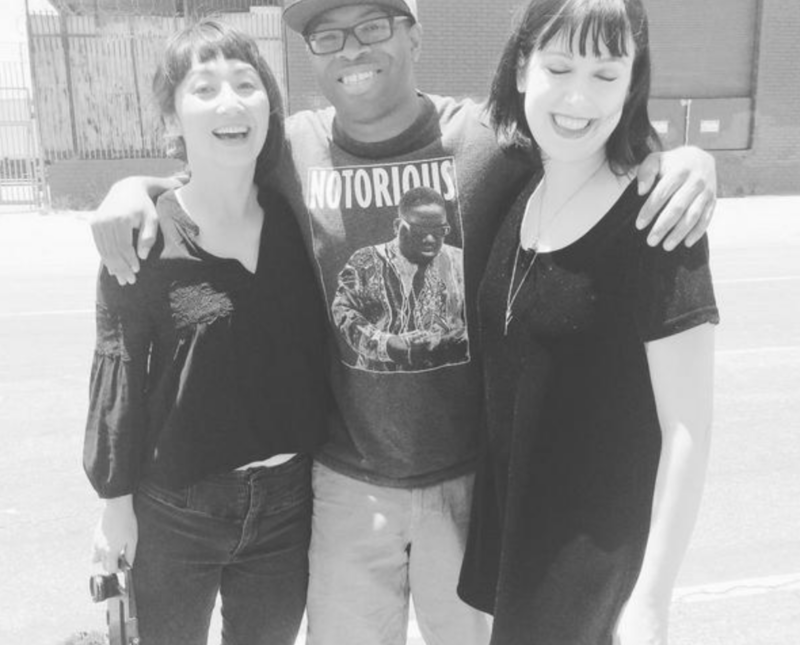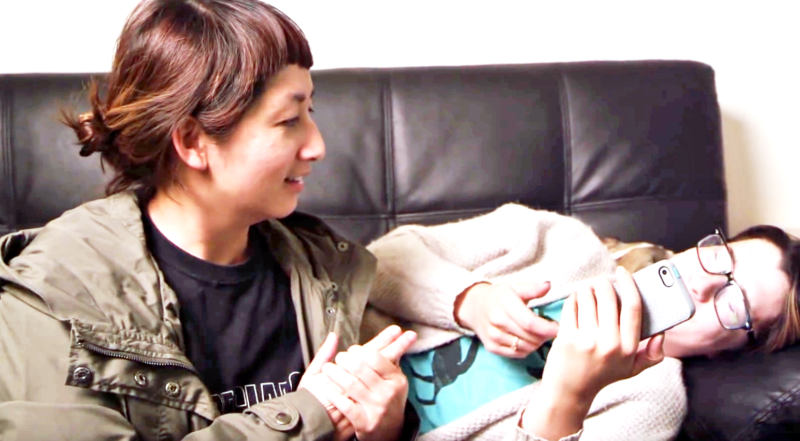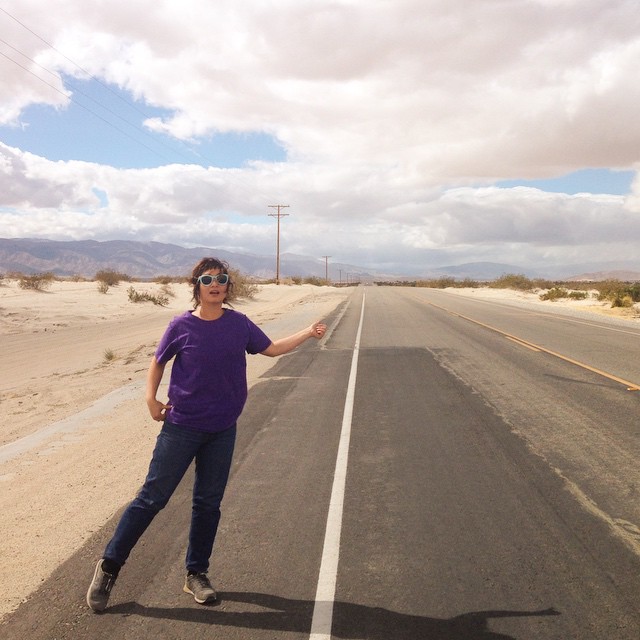Through screens large and small, Hollywood has shaped culture and molded the zeitgeist. Mainstream film and television shows have a tangible power in defining how we understand one another and for far too long it has ignored so many voices—not reflecting the myriad of experiences and stories or our shared humanity. Los Angeles-based writer and producer Thuc Doan Nguyen was fed up with hearing tired excuses from an industry which overwhelmingly celebrates the works of white men, proclaiming they were unable to support films by women and people of color because there was a lack of writers from underrepresented communities, so she founded the Bitch Pack and the Bitch List. The Bitch Pack is a “a collective of creatives and film & media students (current + past), men and women who believe that there should be more screenplays produced into films (reel life) that reflect how women talk, in real life.” The collective puts together The Bitch List, a compilation of screenplays where women are shown as three dimensional characters. We spoke with Nguyen about her work in making Hollywood more inclusive and the stories that she would like to tell herself.

Your work with the Bitch Pack is so necessary, not just in this time and moment of uplifting voices from the margins, but in the way of opening up opportunities for artists to create good art. It offers a place for people to go as an answer to “but I can’t find good scripts written by women!” Can you tell us more about the impetus for this project?
The Bitch List has writers of any and all genders who endeavor to write the best women characters and Bechdel Test passing dialogue for women characters.
I was fed up with some of my screenwriting education and some of my classmates at a Cal State where when we had discussions it seemed they thought it wasn’t important to write fully fleshed women in scripts, and I saw a video about the Bechdel Test. Inspired by The Black List and The Blood List, I set out to create The Bitch List. I switched my writing education to UCLA.
I really appreciated how there’s an intention around how the Bitch List is recognizing that the Bechdel Test is a first step to creating a kind of standard of storytelling and now the Bitch List has also included the Duvernay Test and the Waithe Test (named after Alison Bechdel, Ava Duvernay, and Lena Waithe, respectively). There’s an intersectionality to how the Bitch List treats screenplays and the portrayal of women that is so important. In your experience, why do you think there’s such a dearth of work that can show women in their full humanity?
I think Hollywood has and still most of the time employs their friends from “the old boys’ club,” people who look alike and think alike and have similar views about women. This will only change when Hollywood actually values true inclusion, especially when so many studies and articles show doing right by marginalized groups equals a ton more loot at the box office.
Right! And supporting these people and their work makes for more interesting art! If anything, the lack of new ideas and different stories sort of feeds itself and we get the same types of narratives told over and over again—it’s boring!
And then they wonder when the box office lags. People don’t want to leave their houses to see the same self-glorifying masturbatory work that shows us nothing different.
“Self-gloryfying masturbatory work” could be the tagline for a lot of these same dozen films that get made over and over again!
There is an article that says “Hollywood only recycles the same 13 stories.” There are so many other enlightening stories out there I’d rather see on my screens!

You had sent along a couple treatments for screenplays that you’re working on at the moment. In Scent of The Delta, it’s a story about a woman who returns to New Orleans, where she was raised by her Vietnamese mother and white American father, as a way to connect with her Vietnamese roots. It’s such a particularly Asian American story—the American child of a refugee searching for an ancestral connection an ocean away. What was the inspiration for this screenplay?
I have Hapa Vietnamese friends and a Hapa in my family (dad’s side). I also read the book A Good Scent from a Strange Mountain by Robert Olen Butler and was inspired to think: what if two of the characters inspired by ones in the book had a child? I wanted to pay homage to Butler’s work and correct some of the cultural criticism people have had about his writing on Vietnamese people in New Orleans. I played with that idea and added in parts of my personal story, my mother’s, and a news story I read about a tragedy involving a Vietnamese woman and her family in America and fictionalized it all.
I have spent a lot of time in New Orleans and have for most of my life been fascinated by the city. I was sponsored to a Southern state from a refugee camp and think that the South is mostly seen as just Black and white. We hardly ever see stories about Asian Americans in the South.
It’s so true that even within Asian American communities, especially those of us who live on the west or east coast, to not know that there are big and thriving Asian communities in the Midwest and the South. I just recently graduated from grad school in Mississippi and was fascinated to learn about the Chinese in the Delta and the Vietnamese in the Gulf Coast. The legacy of Asian immigrants and refugees in America is so rich and textured. Was there anything surprising to you as you wrote the screenplay? Was there a discovery in the storytelling that you had not expected to encounter?
Personally, drama was not strong suit in my entire back catalog of feature screenwriting. Other genres had come more easily for me. I love watching slow burn painful dramas. I have written a big historical drama before, but this story (Scent of The Delta) is so much more personal. I’m surprised that I again made myself cry while crafting this story. For me, even as a Vietnamese American woman who already empathizes with women like myself and other women of color, I really whole-heartedly wrote these women in a way for others to see and feel what they have to go through.
This script really hit home for me and allowed me to express a lot of things I was “too tough” to admit happened to me in my life and I’m sure the lives of many Asian-American women— ie. having “me love you long time” yelled at us. There’s so much pain in microaggessions—even more so than blatant discrimination—that people have no idea about. It’s been really cathartic to put all of this on the page directly, not in satire form and not from a removed observer’s or researcher’s place, but from my own lived experience.

As a creator, there’s also the desire to want to balance expressing your own personal experience—especially as catharsis—versus the pressure of representing the experiences of an entire group of people. Did you feel that pressure at all during the process? Or was it more of an exercise of “I will tell my story and in that way it will reflect my community”?
I think that many Vietnamese refugees and Asian American women have similar things happen to them in the US. Of course we all react differently and handle things differently. I told things from my personal point of view, wish fulfillment, self admissions, catharsis. But I also plan when there is a budget for this project to have sensitivity readers who are Hapa and Vietnamese help me out. It’s been way too long (going on three decades since Heaven & Earth by Le Ly Hayslip, directed by Oliver Stone) to show the plight and the joy of the Vietnamese diaspora in America.
“The plight and joy of the Vietnamese diaspora in America” are stories that needs to be told! This project is so personal to you. You’re also working on another screenplay that is equally intriguing. 1886 is a historical drama about Chicago anarchists who are blamed for the Haymarket bombings of that same year. As a person who was infinitely uninterested in history during my school days because the vast majority of history taught in American schools is about white men fighting wars, I thought the 1886 project was such an interesting piece of history that we’re not taught in school. What was the spark that got you going for this screenplay?
I’ve been a long time participant in marches and protests—from Occupy London at St. Paul’s to Standing Rock, North Dakota. I’ve been fortunate to be taught direct action techniques. I was shown a Democracy Now video about The Haymarket Affair and found out that Lucy Parsons, a mixed race woman of color (said to be Black and Native American) is “The Mother of The Sit Down Strike.” So whenever we have seen people conducting “sit-ins” at various places, or most famously at lunch counters in the 1960s, we have Lucy Parsons to thank.
My father was a history and letters teacher in Vietnam. I have always been into history in general, having spent most of my life in old small towns dating from the 1600s (in Maryland). I was also a German scholar as a child. In the Haymarket Affair of 1886—little known fact—German labor activists team up with Lucy Parsons and her husband, Albert Parsons, to march and give us our American labor laws! This true bit of history is the perfect storm of so many of my personal interests!
Overall- we need more Women of Color live action leads in feature films (and tv shows too)!
Artist Bio
Thuc Doan Nguyen is a Los Angeles-based writer and producer. She was born in Vietnam, and grew up in North Carolina and Southern Maryland. She is a double major from The University of North Carolina at Chapel Hill in Public Policy Analysis (Environmental Policy) and Communication Studies and also holds a master’s degree (MPA) obtained in Southern California. Nguyen is the founder of “The Bitch Pack”, a group dedicated to promoting female-driven screenplays through Twitter and other social media sites.


